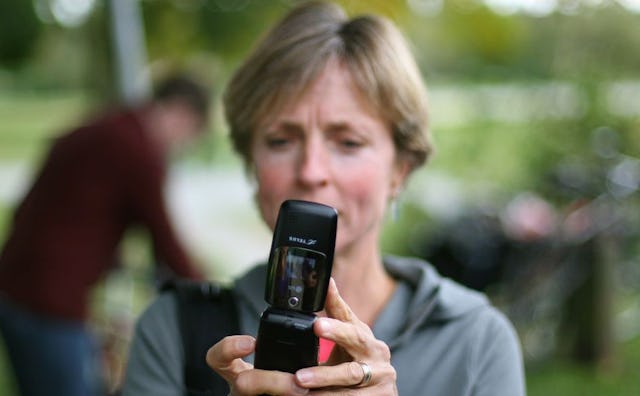Are You Guilty of Over-Sharenting? Join the Club

Judge away, because that’s what I would do. It wasn’t until my kids started getting recognized out in public, however, that I realized the depths of oversharenting to which I’d sunk. But according to a University of Michigan C.S. Mott Children’s Hospital National Poll, I’m far from the only parent guilty of pimping out her kids online, and this so-called “sharenting” trend isn’t going anywhere anytime soon: More than half of mothers and one-third of fathers surveyed admit to discussing child health and parenting on social media.
But how far is too far when it comes to crossing the boundaries between public and private life? Like, was the image I posted of my son missing the target during the trials and tribulations of potty training too much? Please don’t answer that.
“By the time children are old enough to use social media themselves, many already have a digital identity created for them by their parents,” says Sarah J. Clark, M.P.H., associate director of the C.S. Mott poll, and associate research scientist in the U-M Department of Pediatrics. “However, there’s potential for the line between sharing and oversharing to get blurred. Parents may share information that their child finds embarrassing or too personal when they’re older but once it’s out there, it’s hard to undo. The child won’t have much control over where it ends up or who sees it.”
Or will they? In an effort to wrestle back some control of their online identity, our kids are simply not showing up to the parental oversharing party we’ve taken meticulous care to throw for them. Instead of hanging out with us on Facebook—”Facebook is for old people to post lame pictures,” my 12-year-old tells me with the ubiquitous eye roll—more than 11 million young people have 86ed the site since 2011 (#byefelicia!). Even Instagram is now considered a social media dinosaur, thanks to an ever-increasing parental presence with a “pics or it didn’t happen” mentality.
So where are they going instead? In short, to places we’re not, like SnapChat and Oovoo and Whisper and Secret. Places where they can carefully construct and control their own online presence, and post content that’s more fleeting, less permanent. Pretty sneaky, sis! You have to admit it’s kind of brilliant — our kids are effectively making our oversharenting obsolete by not showing up to see it.
Guess it’s time to get to work on those belfies!
This article was originally published on